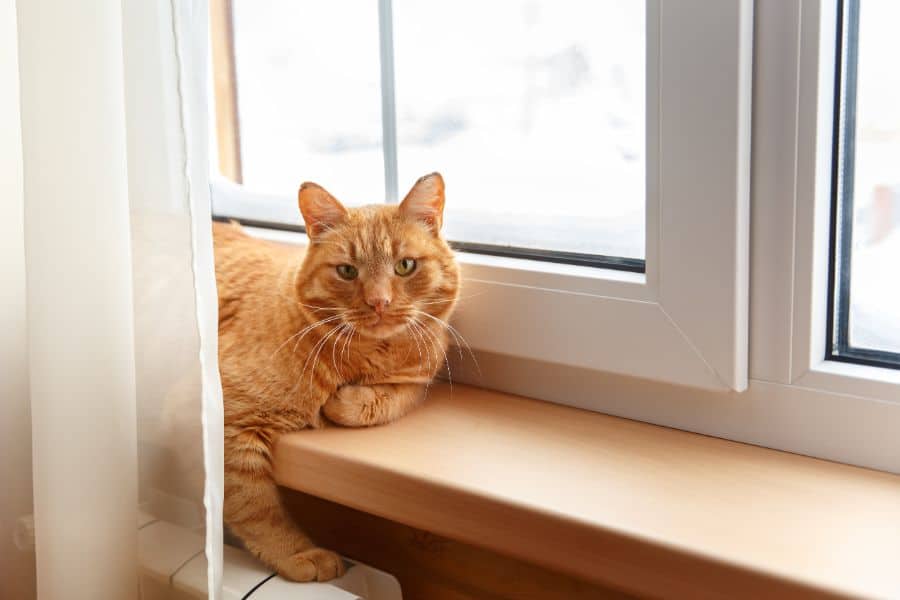Separation Anxiety In Cats: Is It Real?

Scroll through any social media site and you’re sure to run across one of many memes featuring cats irritated by the fact that their owners are suddenly home all day thanks to stay-at-home orders across the country. Everyone knows that cats are considered aloof and independent, but do they really view us as intruders in their homes?
As it turns out, cats are bigger softies than they may seem. Cats can bond deeply with their owners, and often miss them when they’re away. As the economy opens back up and people return to work, separation anxiety in cats may become a real issue in many homes. Your team at Bowman Veterinary Hospital wants to make sure you are prepared to recognize this potential problem, and to help your kitty cope.
Separation Anxiety in Cats
Separation anxiety in dogs has been well studied, and it’s widely accepted that dogs can and do suffer when their owners are gone for extended periods of time. Although there isn’t nearly as much research on separation anxiety in cats, a study recently published in the Brazilian journal PLOS ONE found that more than 1 in 10 cats displayed behaviors associated with the condition.
Telltale Signs
Cats are creatures of habit, and anything that disrupts that habit (such as a beloved owner who was home all day for months and is suddenly gone again), can throw them off. Separation anxiety in cats is usually associated with behavior problems such as:
- Urinating and/or defecating outside the litter box
- Destructive scratching or chewing
- Excessive vocalization
- Aggression towards humans or other animals in the home
- Depression/lethargy
- Loss of appetite
- Excessive grooming (to the point of hair loss)
- Spraying your bed or belongings
Helping Kitty Cope
If you find yourself in the throes of cat separation anxiety, take heart. There are ways for devoted cat owners to alleviate their cat’s distress, and restore harmony in the home.
Set the stage – Make sure your cat has plenty of stimulating things to do and see while you’re gone. Cat trees, cat shelves, food puzzles, interesting toys, and even a bird feeder placed outside an easily accessible window give bored cats an outlet. Some cats enjoy watching videos of squirrels, birds, and other small wildlife.
Keep it fun – Rotate toys every other day or so to keep things interesting. Set out favorite toys only when you are about to leave the house.
Fill their cup – Cats thrive on routine, so do your best to keep their feeding and playtimes the same each day. Fill your kitty’s cup by giving them all the attention they want while you’re home, including active playtime to help tire them out.
Use pheromones – Pheromone diffusers mimic the soothing hormones produced by nursing mother cats, and can work wonders for anxious house cats. Simply plug it in the rooms your cat spends the most time in.
And as always, don’t be afraid to ask your trusted veterinarian for help. We have seen it all when it comes to cat anxiety, and can further assist you.


